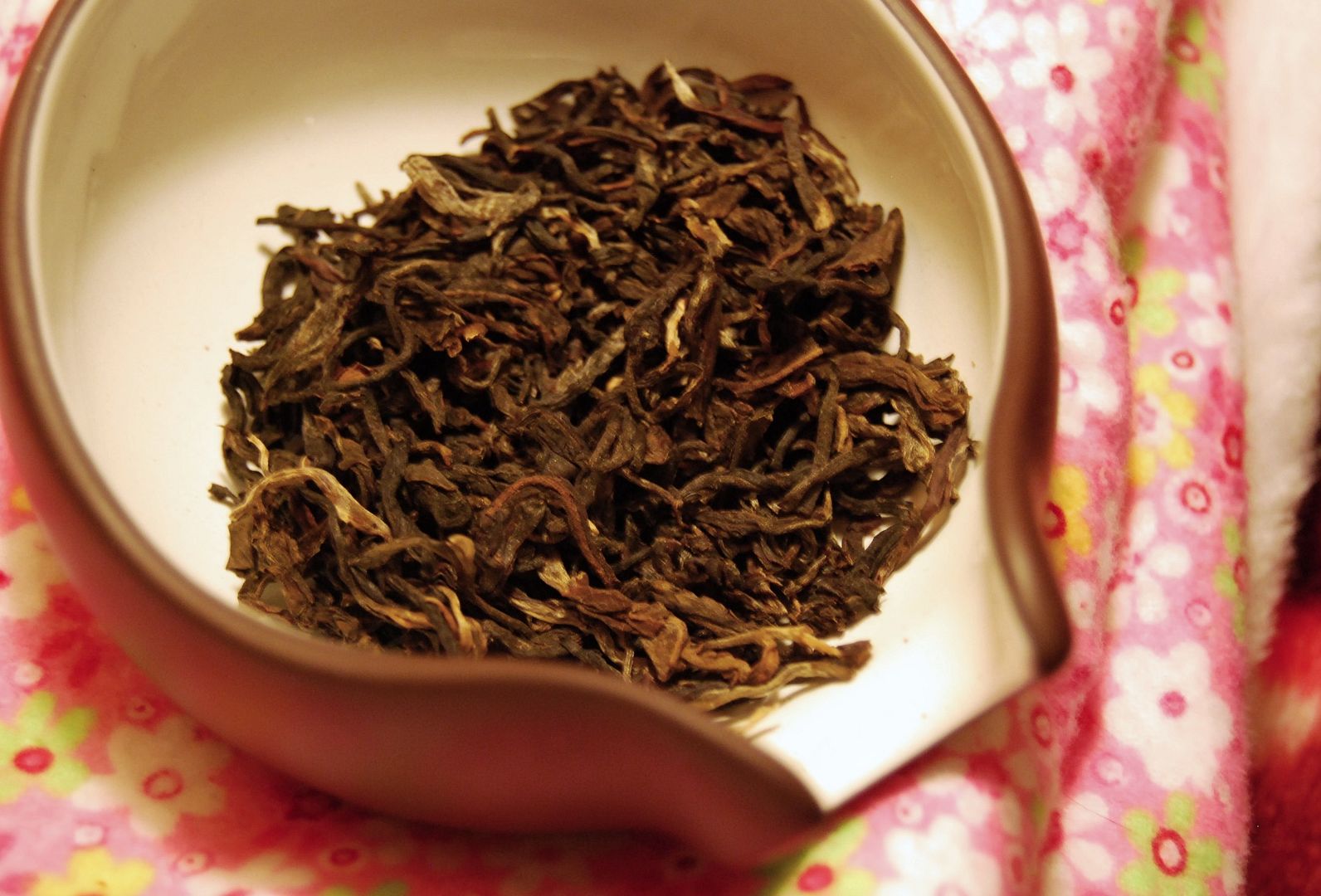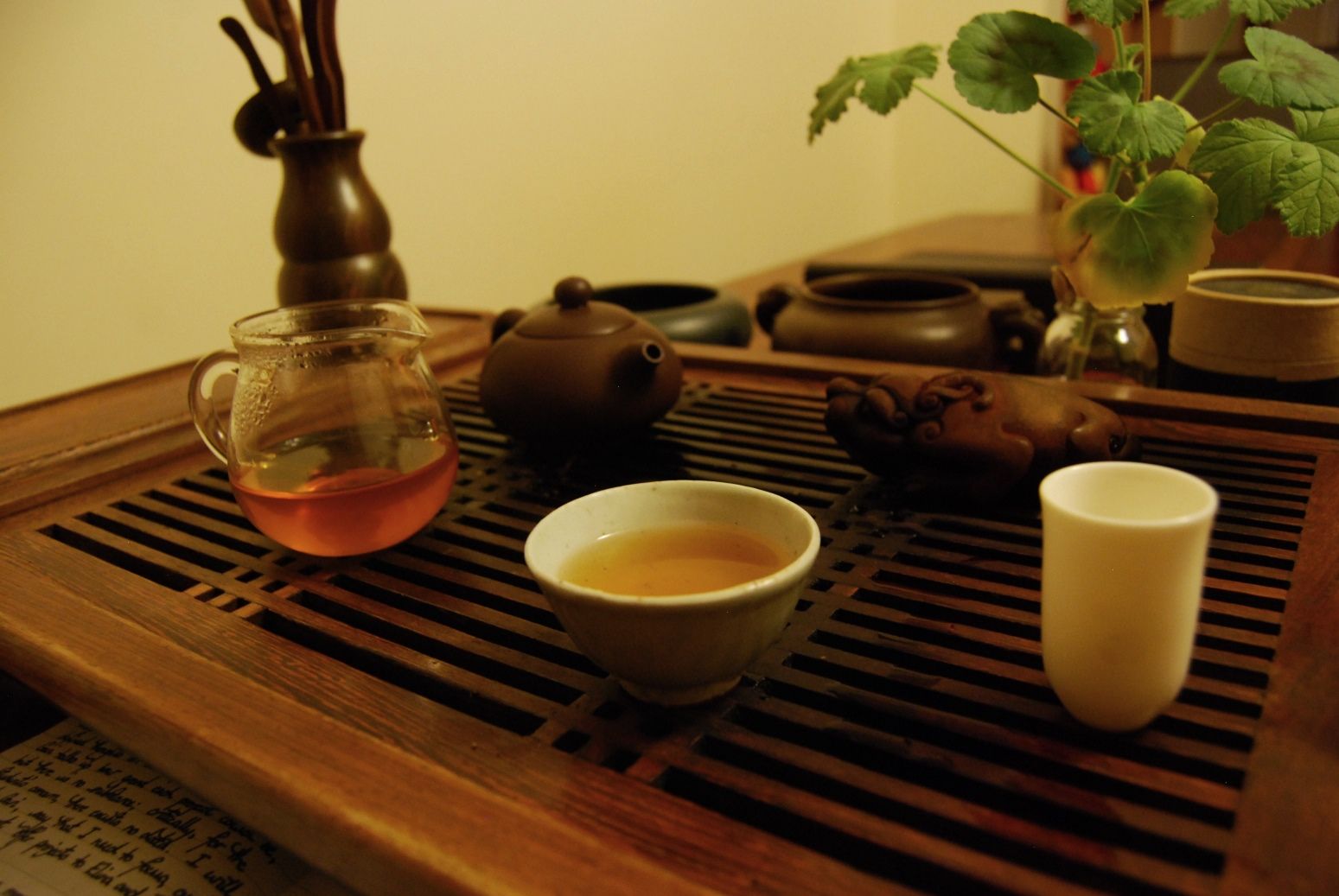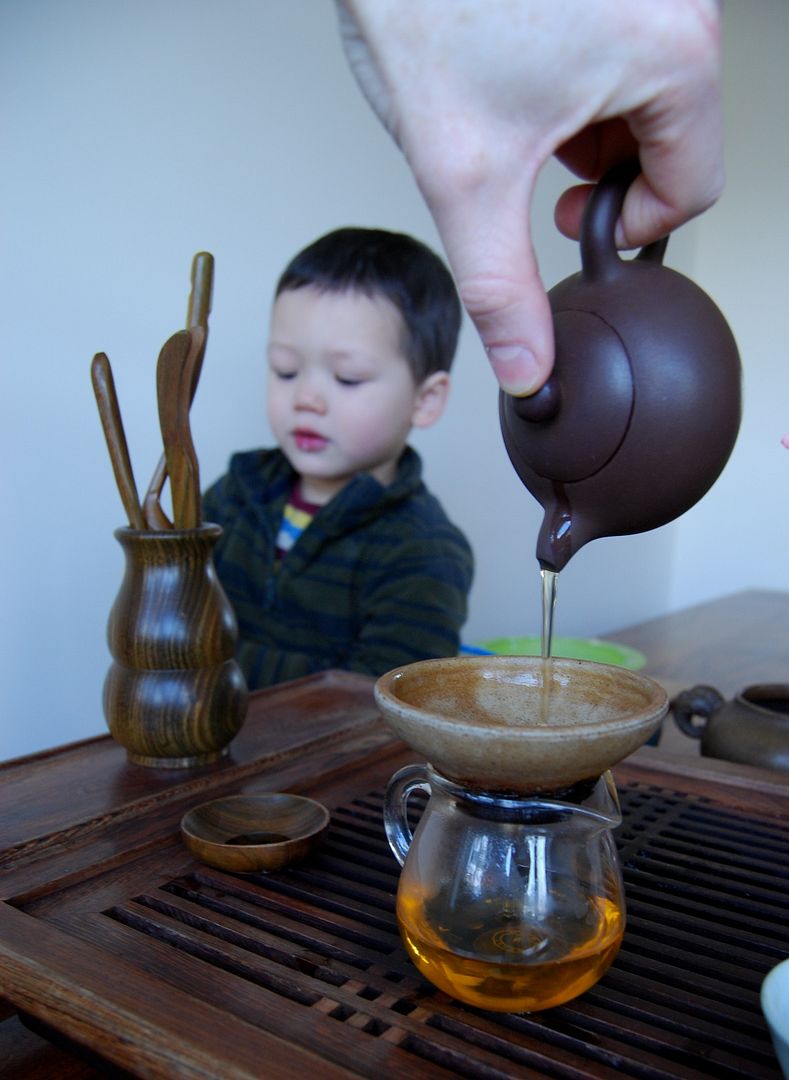In a recent plunge into my archives, I found a sample of 2004 "Jin Damo" from TG, a teachum from my native lands, East Anglia. This tea is, I think, from Postcard Teas, a most enjoyable London shop that I visited before. From the latter article, you might see that I own a cake of 2005 "Jin Damo". Amusingly, I have absolutely no idea where it might be.
"Damo" is the Chinese name for Daruma / Bodhidharma, the monk responsible for bringing Zen (Chan) out of India, to China, and who is therefore known as the "first patriarch". "Jin Damo", then, is Golden Daruma! Such was the reputation of Daruma that the poor old second patriarch, Huike, allegedly had to cut off his arms before the master took his request for Zen tuition seriously. Among other legends associated with Daruma, one includes the master cutting off his own eyelids to prevent himself falling asleep in zazen (meditation). Subsequent layers of accreted legend have it that the eyelids, on hitting the floor, turned into tea plants. Tasty. If I ever make a tea, it'll be called "Damo's Eyelids".
Comedy legends aside, this tea is attributed to the "Liu family" by Postcard Teas, which has later become an attribution to "Master Liu". You simply cannot be taken seriously in the business of selling tea, it seems, unless you are a "master". I see from its web-pages that Postcard Teas currently sells a pretty 2012 xiaobing for just £15, which seems potentially quite reasonable.
I cannot determine whether or not this cake is the same genre as that sold by TeaHub under the same name. If you have any insight, gentle Reader, it would be most gratefully received.
I cannot determine whether or not this cake is the same genre as that sold by TeaHub under the same name. If you have any insight, gentle Reader, it would be most gratefully received.
You may have concluded from the photography that this session started before the sun rose (hence the dodgy artificial lighting in the first image), proceeded through the dawn (in the second image), and concluded during the day (in the final image, accompanied by Xiaohu, my eldest son). That is not to say that this tea lasted that entire time under continuous brewing, merely that a father's duties are many and that continuous time at the tea-table becomes less possible in a manner that is inversely proportional to the number of offspring that one has.
The fragmented, small leaves are dark enough for a 2004 cake; the dry-scent of the leaves is unusually sweet - almost "cloying", as my notes have it. The resulting brews are clean and woody; there exists plenty of sweetness that penetrates into the deeper recesses of the mouth and throat, while the low soup has a reasonable thickness. The "flavour" is not enormous, but the energetic effect of the tea is felt by the body immediately. Damo would be pleased indeed with the stimulating consequences that is has on the attention span.
After a dozen infusions, this solid and respectable tea shows no sign of cracking. It remains heavy, low, chunky, and sweet. A rich tone begins to creep in underneath the constant sweetness after ten or so infusions, which is most welcome. I am quietly impressed, and am resolved to find my version of this cake for comparison.
Thanks again to TG for the excellent, and enduring, session.
The fragmented, small leaves are dark enough for a 2004 cake; the dry-scent of the leaves is unusually sweet - almost "cloying", as my notes have it. The resulting brews are clean and woody; there exists plenty of sweetness that penetrates into the deeper recesses of the mouth and throat, while the low soup has a reasonable thickness. The "flavour" is not enormous, but the energetic effect of the tea is felt by the body immediately. Damo would be pleased indeed with the stimulating consequences that is has on the attention span.
After a dozen infusions, this solid and respectable tea shows no sign of cracking. It remains heavy, low, chunky, and sweet. A rich tone begins to creep in underneath the constant sweetness after ten or so infusions, which is most welcome. I am quietly impressed, and am resolved to find my version of this cake for comparison.
Thanks again to TG for the excellent, and enduring, session.




Hi Hobbes,
ReplyDeleteI happen to own a cake of the 2005 Golden Da Mo and was unable to find it anywhere else among the online tea vendors. Thanks for the enlightenment! Finally I know what I have been drinking :)
The current price of the cake where I've bought it a while ago is 220 EUR (keep breathing, please), and while I do enjoy it very much I can't say I would buy it at the current price (honestly I don't remember what I've payed for it, but it sure wasn't the above).
Now, back to reading. Thanks again!
Correction, and please don't fall off your seat: 400 EUR for a 500g cake. Now I get the "golden" reference.
ReplyDeleteYikes - not within the vicinity of a bargain. :)
ReplyDeleteToodlepip,
Hobbes